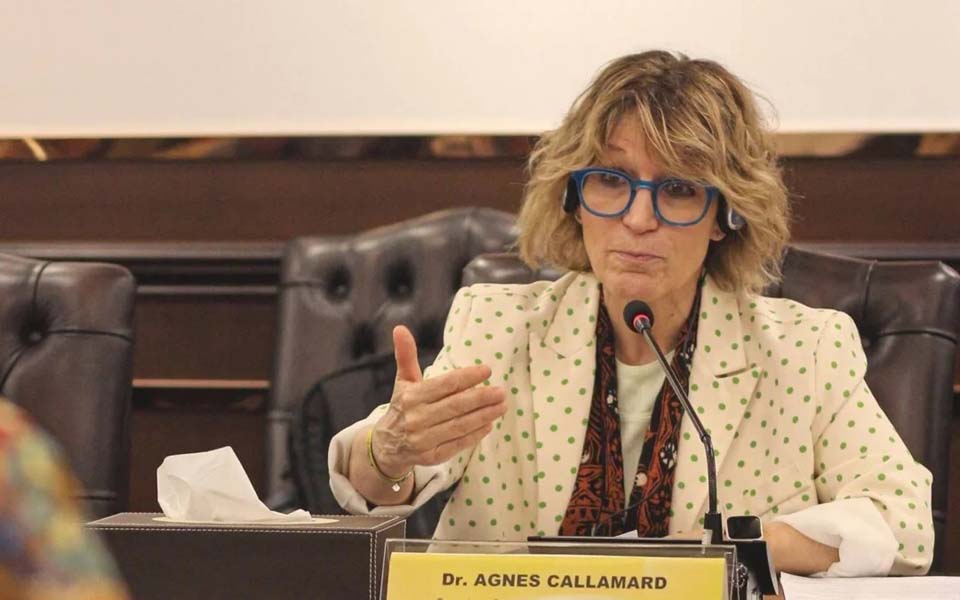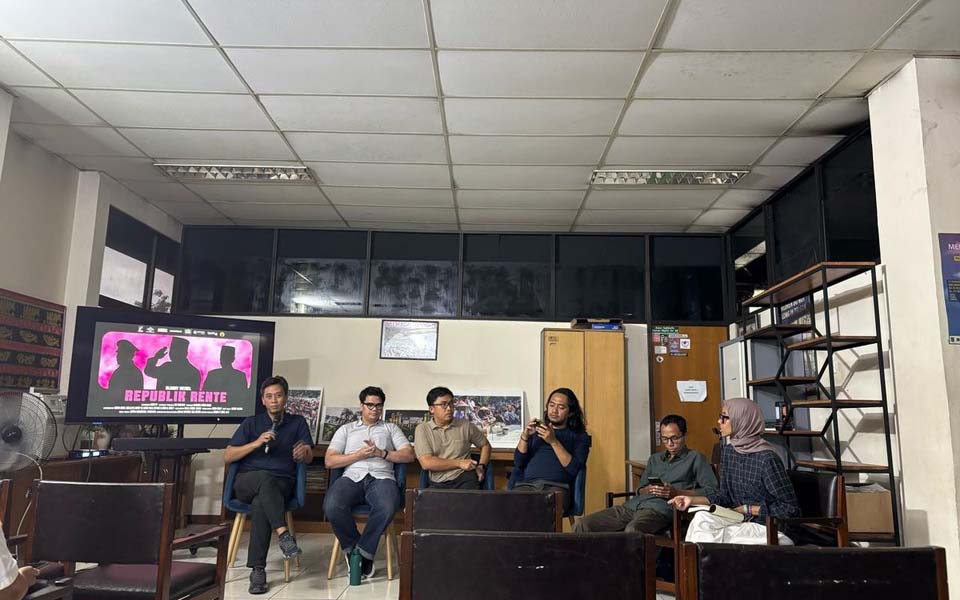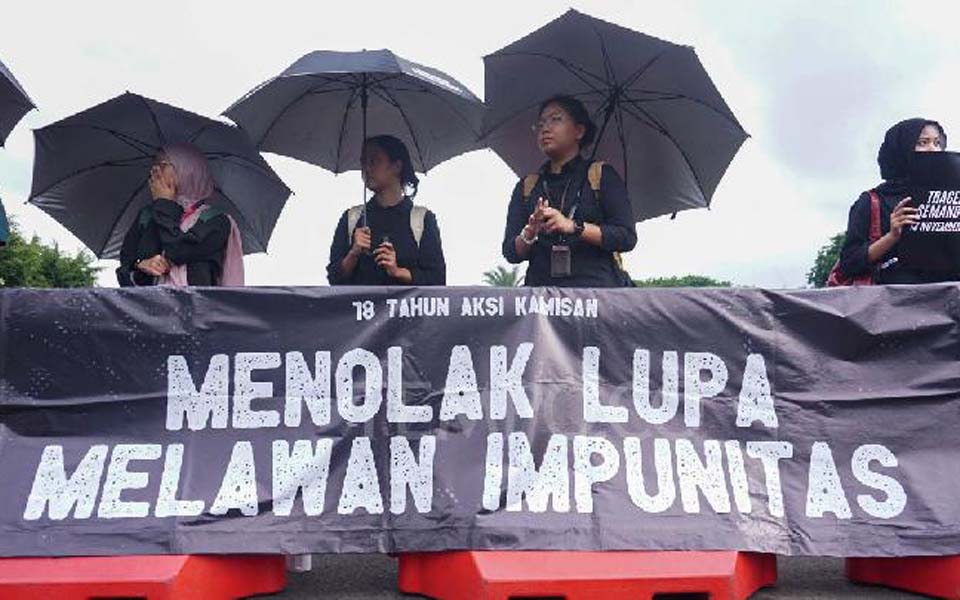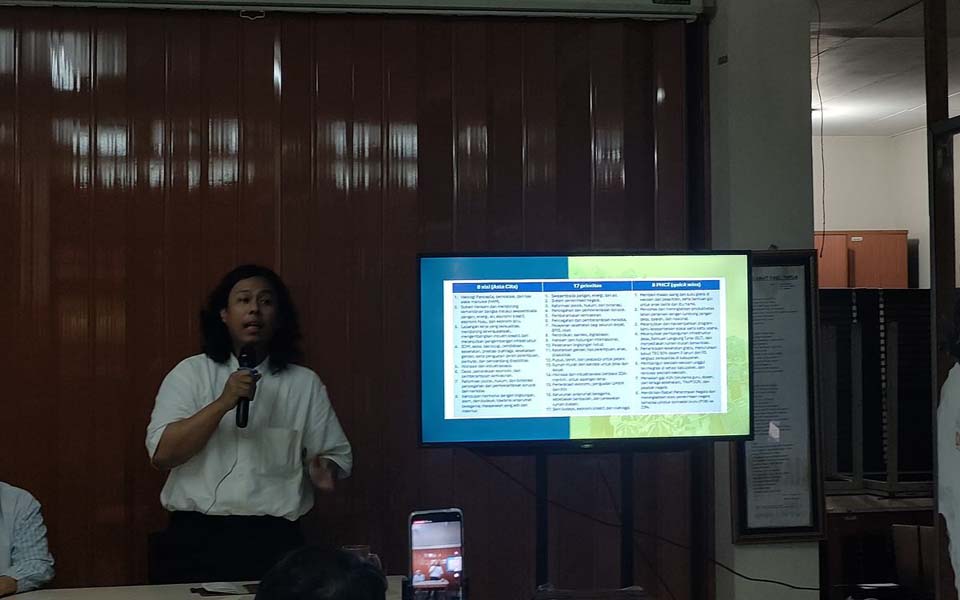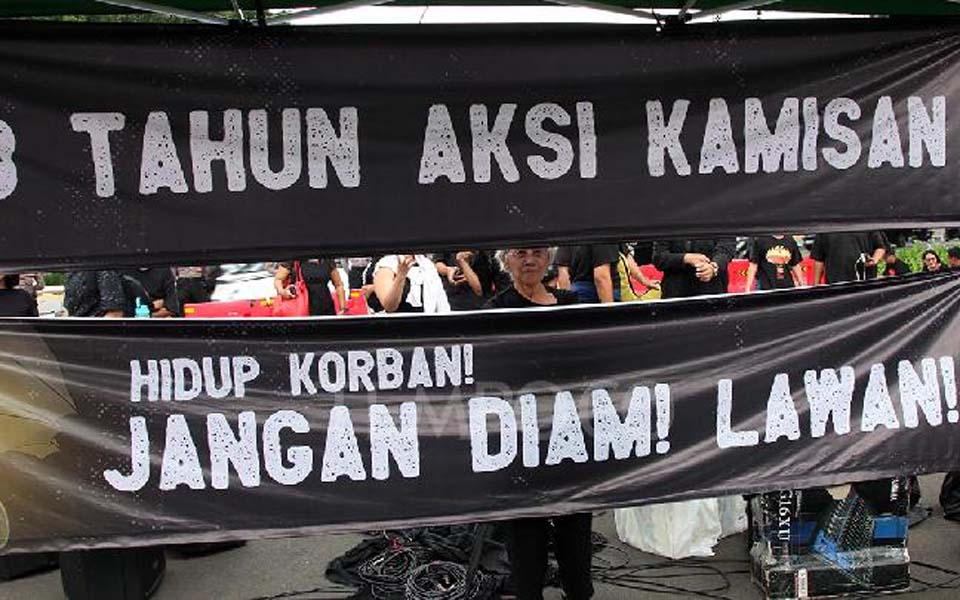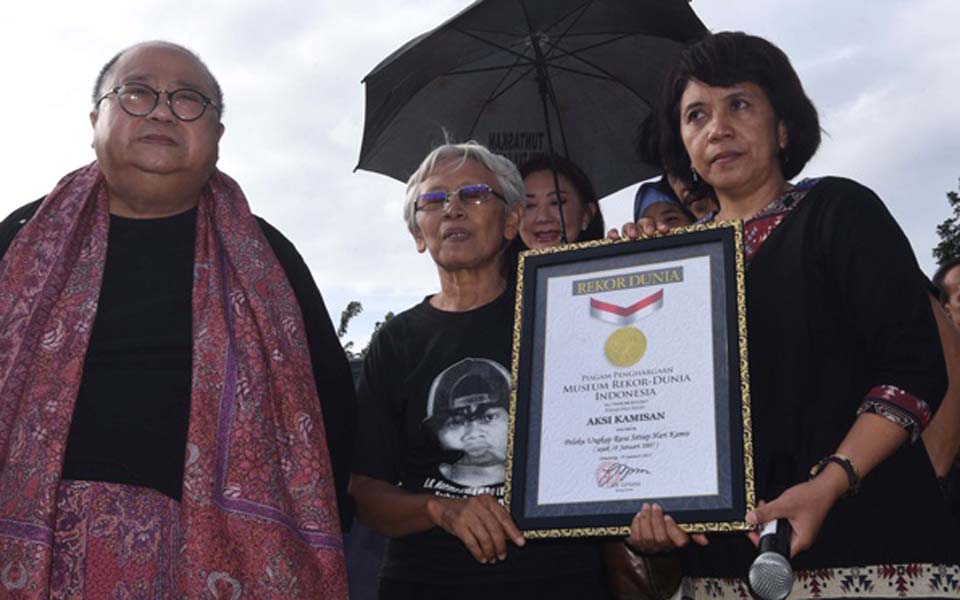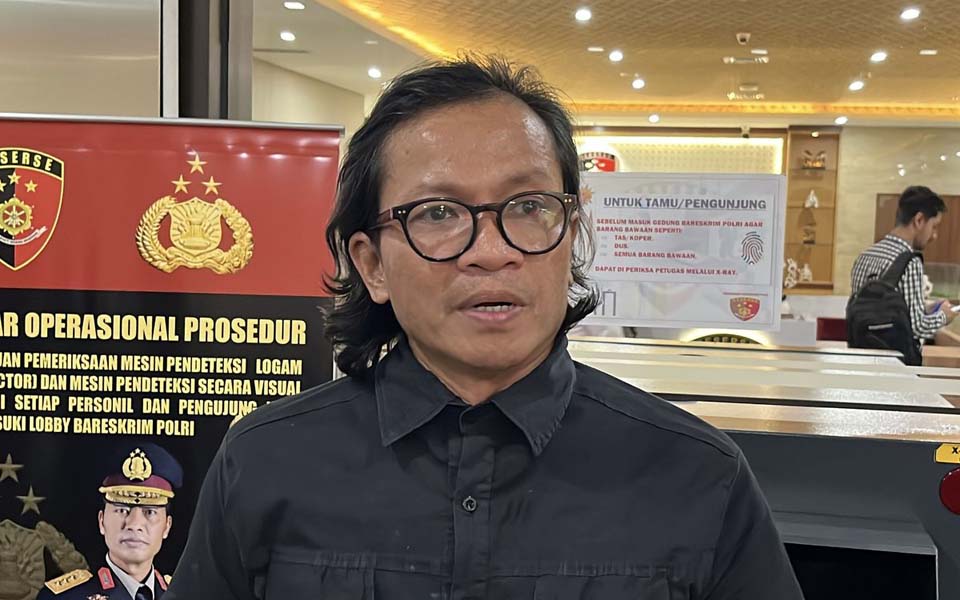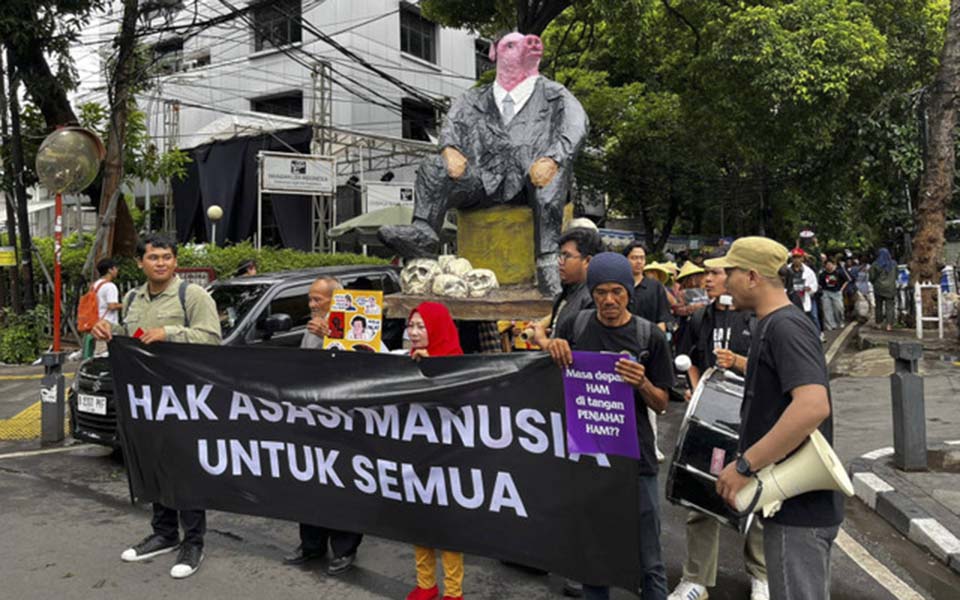Jakarta – A number of groups that make up the civil society coalition consider the Indonesian government through its delegation provided contradictory information on the state of Indonesia's human rights at an International Covenant on Civil and Political Rights (ICCPR) hearing in Geneva, Switzerland, on Tuesday March 12.
They are the Commission for Missing Persons and Victims of Violence (Kontras), the Indonesian Legal Aid Foundation (YLBHI), Asian Justice and Rights, Amnesty International Indonesia, Transmen Indonesia, the Human Rights Working Group (HRWG), FORUM-ASIA and Kontras Aceh.
Kontras Coordinator Dimas Bagus Arya for example believes that the Indonesian delegation did not provide a complete statement related to cases of past gross human rights violations such as the 2004 assassination of renewed human rights defender Munir Said Thalib or the case of human rights activists Haris Azhar and Fatia Maulidiyanti.
"The Indonesian government again and again in every international forum projects an image as if there is already a compliance with the norms of fulfilling the upholding of human rights protections, particularly in the context of political civil rights", said Arya during an online event on Monday March 18.
In the Munir case that was questioned by the ICCPR committee, according to Arya, the Indonesian government claimed that coordination was still taking place between the National Human Rights Commission (Komnas HAM) and the Attorney General's Office (AGO) in accordance with Presidential Instruction Number 2/2003.
Yet according to Arya, the government should refer to Law Number 26/2000 on Human Rights Courts to push the AGO to investigate and prosecute cases of gross human rights violations.
"At that time the ICCPR committee was asking critically and in a complementary or comprehensive manner in relation to gross human rights violations that occurred in the past", he said.
Then regarding the defamation case brought against Azhar and Maulidiyanti by Coordinating Minister for Maritime Affairs and Investment Luhut Binsar Pandjaitan, the ICCPR committee raised the case as a form of criminalisation of human rights defenders who were indicted under the Information and Electronic Transaction (ITE) Law.
The Indonesian government, according to Arya, actually claimed that the case has been fully resolved because Azhar and Maulidiyanti were declared not guilty by the courts and released on all charges. But in fact, the verdict is currently being challenged in the Supreme Court.
"So we highlighted the facts that were indeed conveyed as a counter-narrative or contradicting the reality and the implementation that should be an evaluation", Arya said.
Similarly, Amnesty International is of the view that the Indonesian government gave inadequate responses and even tended to minimise the facts about the human rights situation in Indonesia at the forum.
"The quite critical questions given by the committee to the Indonesian delegation, and some of the answers from members of the Indonesian delegation actually left us scratching our heads and a little disappointed", said Amnesty International Deputy Director Wirya Adiweda.
Adiweda said that what was conveyed was not in accordance with the facts of the human rights situation in Indonesia and the answers conveyed by the Indonesian delegation were just the same old answers or in other words there was no change.
In the context of past gross human rights violations, he said, one thing that emerged in the 2023 review by the ICCPR committee was the existence of a deadlock between the AGO and the Komnas HAM regarding the investigation of past violations.
In relation to extrajudicial killings, torture and other inhuman treatment, the Indonesian government claims to have policies that do not tolerate impunity.
According to Adiweda, the Indonesian delegation argued that the number of extrajudicial killings by security forces was relatively less than those committed by armed civilian groups.
Conversely, Amnesty International noted that from January 2018 to May 2023, there were around 65 cases of extrajudicial killings involving 106 victims.
"This is not an answer that is worthy of being conveyed by the state, which should take responsibility for protecting its citizens", he said.
Then in relation to the situation in Papua, the Indonesian delegation said that internal refugees in Papua only occur due to three things.
First, natural disasters, or droughts. Second, due to horizontal conflicts, and third due to violence by armed criminal groups, without mentioning the consequences of a massive security forces presence in Papua.
"Things like this make us wonder and feel that there is a lack of commitment by the state to [address] the problems conveyed by members of the UN Human Rights Committee. Answers that are always the same show that the human rights problems in Indonesia have never been thoroughly resolved", said Adiweda. (khr/dna)
[Translated by James Balowski. The original title of the article was "Pemerintah Dinilai Kontradiktif Soal Kondisi HAM RI di Sidang PBB".]







